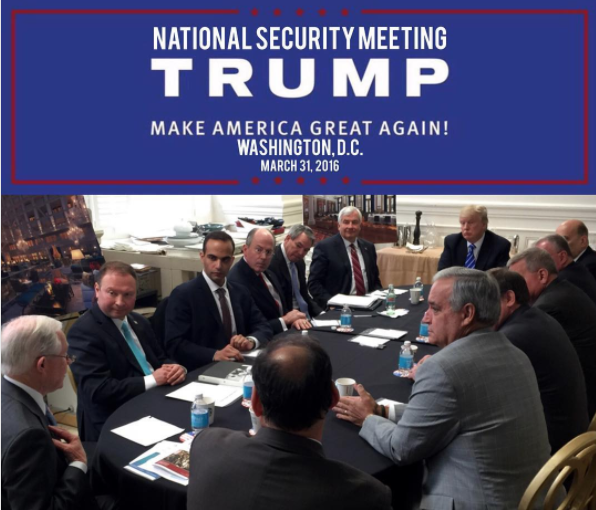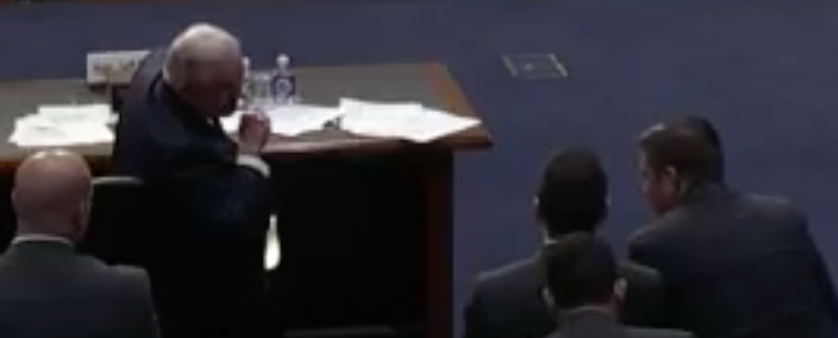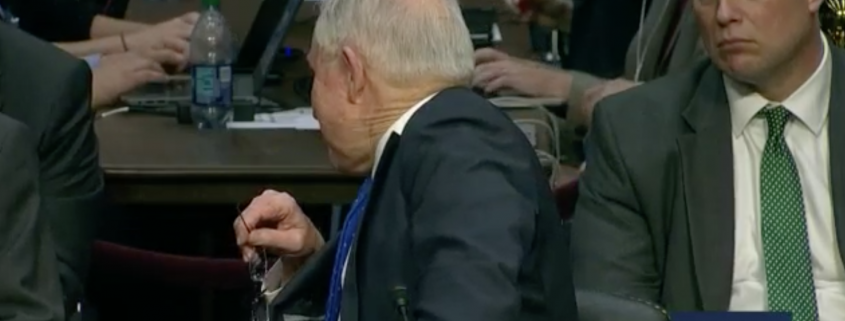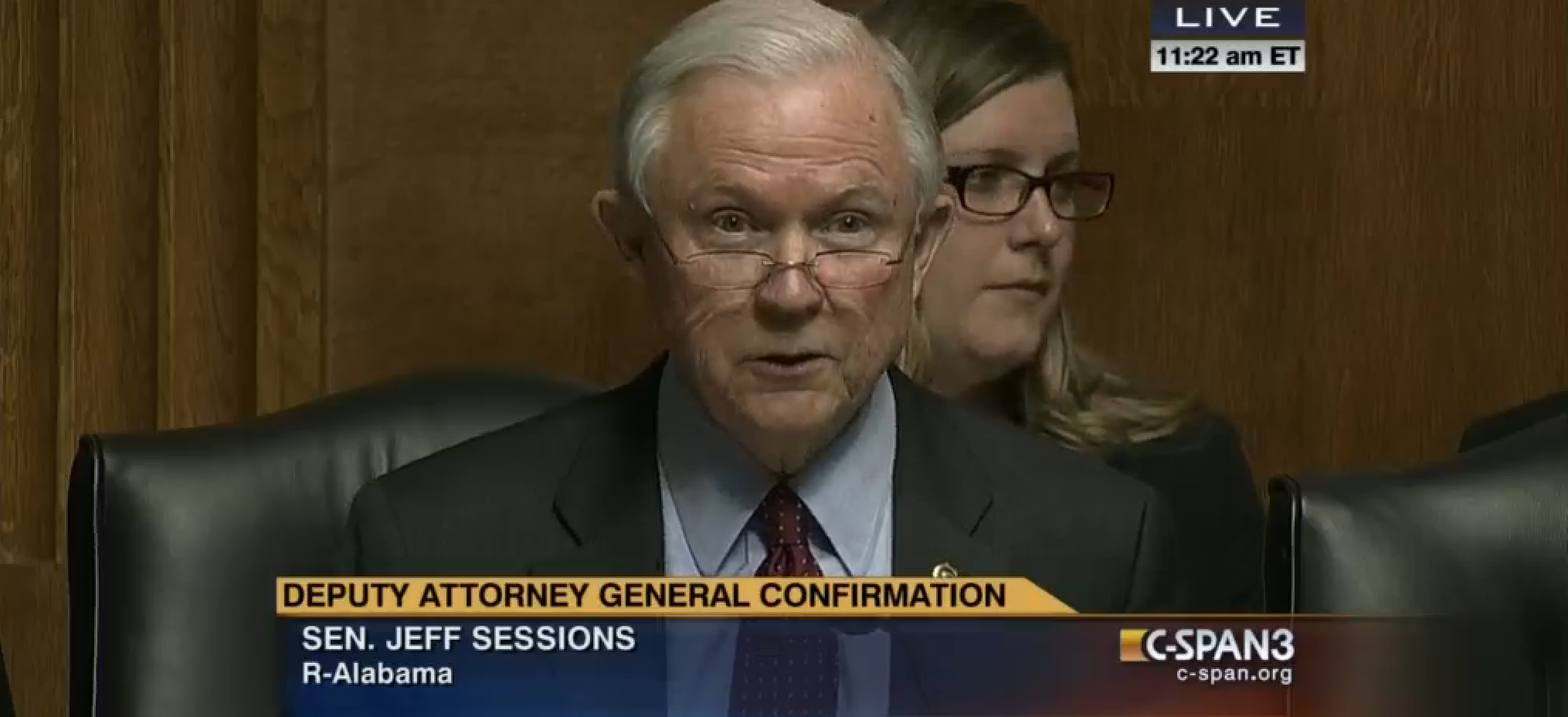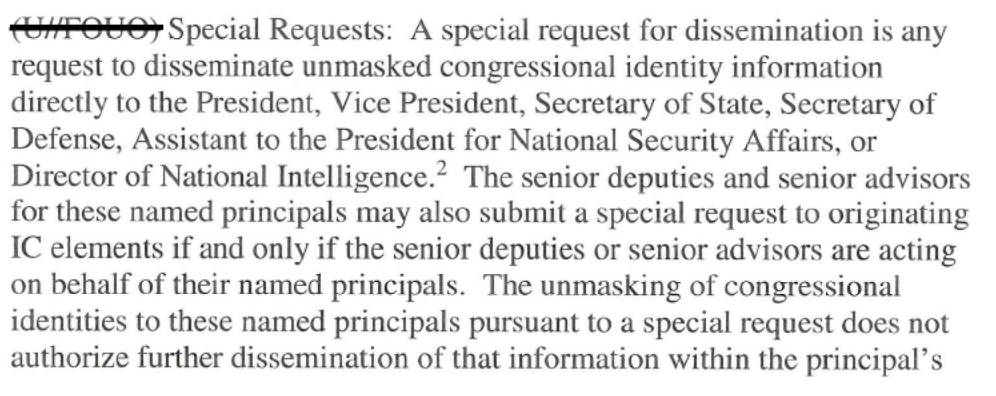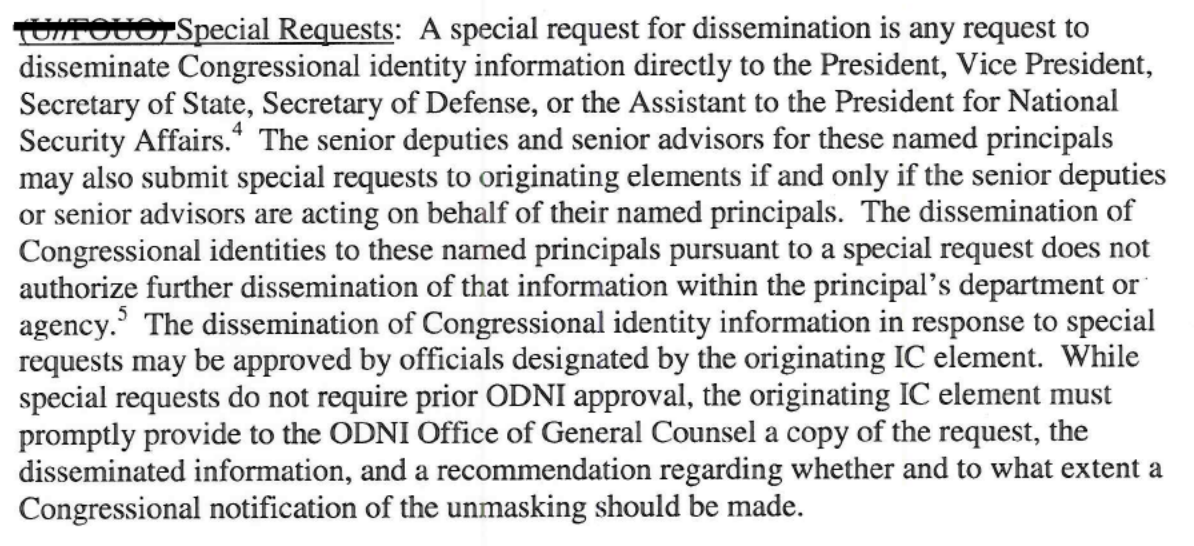Jeff Sessions Unforgets the Discussions with Russians He Twice Swore He Didn’t Know About
In response to Monday’s server hiccups and in anticipation that Mueller is nowhere near done, we expanded our server capacity overnight. If you think you’ll rely on emptywheel reporting on the Mueller probe, please consider a donation to support the site.
On Monday at the Intercept and yesterday on Democracy Now, I pointed out that the George Papadopoulos plea showed that Jeff Sessions continues to lie under oath about what he knows about Trump campaign surrogates interacting with Russians.
Sessions has repeatedly testified to the Senate that he knows nothing about any collusion with the Russians. (Though in his most recent appearance, he categorized that narrowly by saying he did not “conspire with Russia or an agent of the Russian government to influence the outcome of the 2016 presidential election.”)
But the Papadopoulos plea shows that Sessions — then acting as Trump’s top foreign policy adviser — was in a March 31, 2016, meeting with Trump, at which Papadopoulos explained “he had connections that could help arrange a meeting between then-candidate Trump and President Putin.”
[snip]
Sessions’s claims about such meetings came in sworn testimony to the Senate. During his confirmation process, Sessions was asked a key question by Sen. Al Franken, D-Minn.: “If there is any evidence that anyone affiliated with the Trump campaign communicated with the Russian government in the course of this campaign, what will you do?”
“Senator Franken, I’m not aware of any of those activities,” Sessions responded. “I have been called a surrogate at a time or two in that campaign and I didn’t have — did not have communications with the Russians, and I’m unable to comment on it.”
The question, however, was about Sessions’s knowledge of such communications, and we now know he was in a meeting in which they were discussed.
More recently, on October 18, Sen. Patrick Leahy, D-Vt., asked Sessions a series of questions about his knowledge of interactions with Russians, including whether he had discussed emails with Russian officials since the campaign. To that question, Sessions said he “did not recall.”
Franken then asked, in an attempt to clarify the confirmation questions, “You don’t believe that surrogates from the Trump campaign had communications with the Russians?”
“I did not — and I’m not aware of anyone else that did. I don’t believe that it happened,” said the attorney general whose own department had, two weeks earlier, already gotten a guilty plea from a campaign surrogate describing such discussions with Russians.
Now that other media outlets have caught up with the significance of the March 31 meeting, there have been a number of stories that make it clear Jeff Sessions has now unforgotten the outreach to Russia he twice swore he didn’t remember.
In this telling, Sessions was the hero of the moment, insisting that the campaign not pursue a meeting with Putin, while Trump was more ambivalent.
Candidate Donald Trump did not dismiss the idea of arranging a meeting with Russia’s president when it was suggested in a meeting with his campaign foreign policy advisers last year, according to a person in the room.
The idea was raised by George Papadopoulos as he introduced himself at a March 2016 meeting of the Republican candidate’s foreign policy advisers, according to a court filing.
“He didn’t say yes and he didn’t say no,” the official said, declining to be more specific about Trump’s response to Papadopoulos.
But the chairman of Trump’s national security team, then Alabama senator and now attorney general Jeff Sessions, shut down the idea of a Putin meeting at the March 31, 2016, gathering, according to the source. His reaction was confirmed with another source who had discussed Session’s role.
If the first sourcing here — one of the nine men in the room — didn’t indicate these leaks came from Sessions’ orbit, the second one — a source who discussed Sessions’ role — makes it clear.
Let’s pretend for the moment that this telling is accurate, and that then Senator Sessions recognized the legal and political risk of cozying up to Vladimir Putin (and not just another attempt to telegraph what someone has testified or plans to testify to the grand jury).
If that’s correct, that means Sessions has twice lied under oath about knowing about efforts to reach out to the Russians. And he did so knowing that the President was sort of cool with the idea.
That is, it would suggest Sessions’ lies, given under oath, were designed to protect the President.

